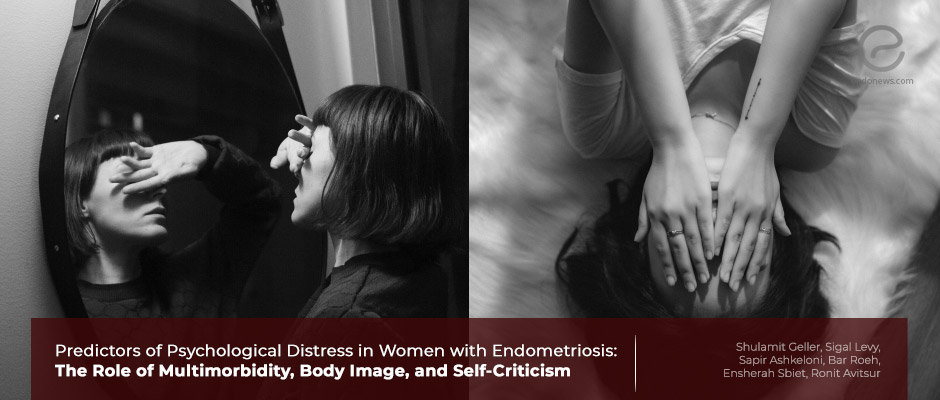What causes distress in women with endometriosis?
Jul 9, 2021
Physiological distress is caused by thoughts on body image, self-criticism, and pain intensity in patients with endometriosis study suggests
Key Points
Highlight
- Women with endometriosis suffer from higher levels of depression and anxiety compared to healthy individuals.
- Another chronic illness that coexists with endometriosis increases the physiological distress that the patients feel.
Importance
- The physiological distress comes from the thoughts on body image, self-criticism and it is closely related to pain intensity.
- Multimorbidities and depression usually happen together and this coexistence triggers more symptoms.
Key results
- The patients with endometriosis are in more psychological distress owing to the fact that because of their illnesses they do not have confidence in the way that their body looks and the self-criticism they make.
- The distressed patients should be detected and necessary interventions should be performed for them to live a stress-free life.
What’s done here?
- This is a cross-sectional study carried out with an online survey on patients suffering from endometriosis with or without other chronic illnesses compared to healthy individuals.
- The aim was to identify the effects of body image, self-criticism, and pain intensity on depression and anxiety.
Limitations
- This study was designed as a cross-sectional study therefore it constrains causal conclusions.
- The created mediation model’s validity should be increased.
- The participants were recruited online and they were all Hebrew-speaking.
- Disease status was not properly assessed.
Lay Summary
Endometriosis is a disease that affects a woman’s life from many different aspects; emotionally, sexually, and physiologically. With the burden of the distress caused by the disease, most women suffer from anxiety and depression. This results in lower self-esteem and poorer body image. The link between endometriosis and physiological distress symptoms is unclear.
In order to address and simplify this confusion, Geller et al. from Tel-Aviv, Israel aimed to identify the physiological distress symptoms and mechanisms that are responsible and develop a model that explains how differently endometriosis may affect each individual. The study was published in the March 2021 issue of the "International Journal of Environmental Research and Public Health".
To evaluate these issues, a survey was carried out online with 247 women aged 20-50 years. Participants included women with endometriosis and women with endometriosis and another chronic illness as well as healthy individuals. The survey included questions on the demographical characteristics of the patients, the pain intensity, and scales about the severity of depression, anxiety, body appreciation, and self-criticism. In patients with chronic illnesses alongside endometriosis, the severity of depression was found to be higher, the body image was lower and self-criticism was greater. Anxiety levels were significantly lower in healthy women.
In the created mediation models, depression was found to be mediated by body image and self-criticism in all patients with endometriosis compared to healthy individuals. The group of patients with endometriosis and another chronic illness showed greater pain intensity which was found to be an indirect path to depression and anxiety.
The authors also discussed the effects of the COVID-19 pandemic on the distress that the endometriosis patients included in the study had been feeling. Because of the mandatory self-isolation and the distress it added to the existing distress these patients had been feeling, the level of physiological distress was thought to be higher than in other studies. Another emphasis was made on the fact that not necessarily all women with endometriosis were more distressed than the healthy ones.
The article concludes that more studies are needed to develop physiological interventions for the patients with endometriosis and even more so for the patients that suffer from multimorbidities. Compassionate mind training or psychological acceptance therapy is thought to be helpful in this regard.
Research Source: https://pubmed.ncbi.nlm.nih.gov/33810403/
endometriosis physiological distress depression anxiety compansionate mind covid

